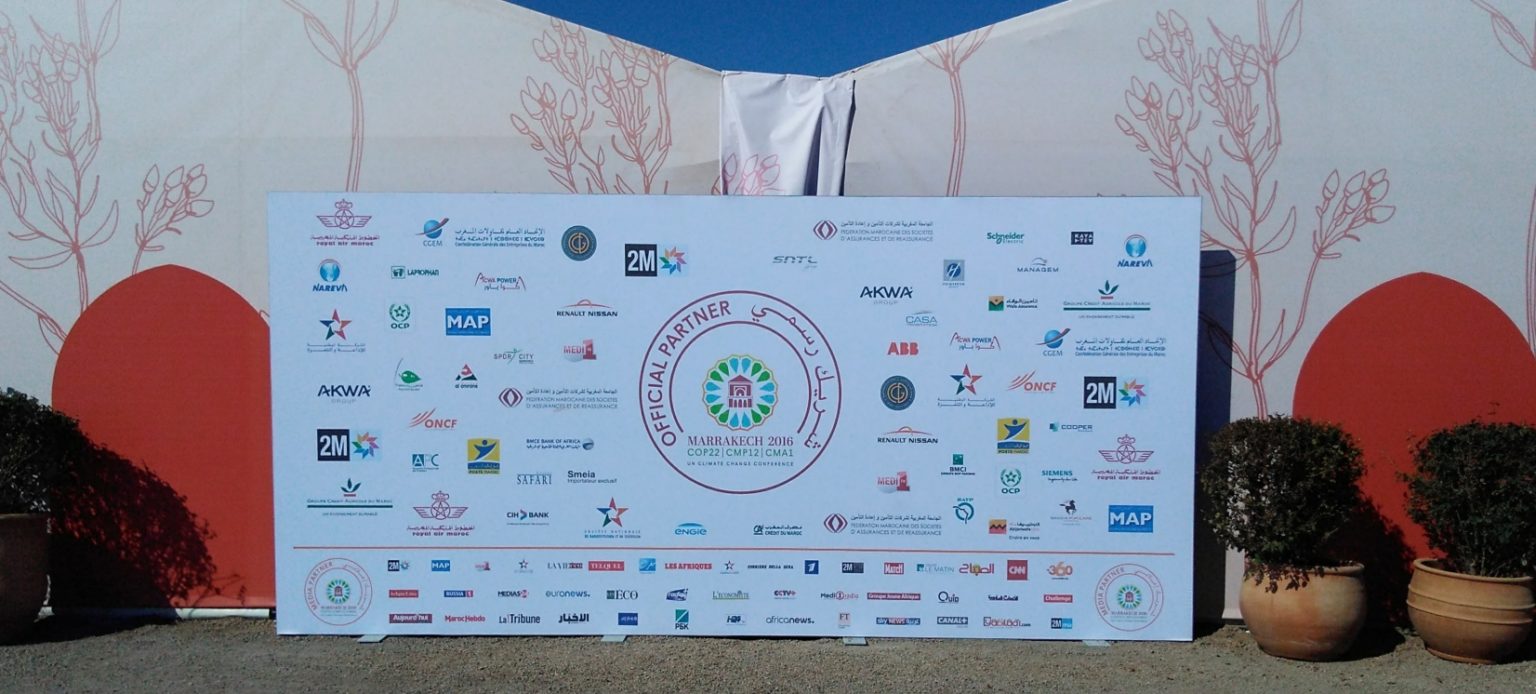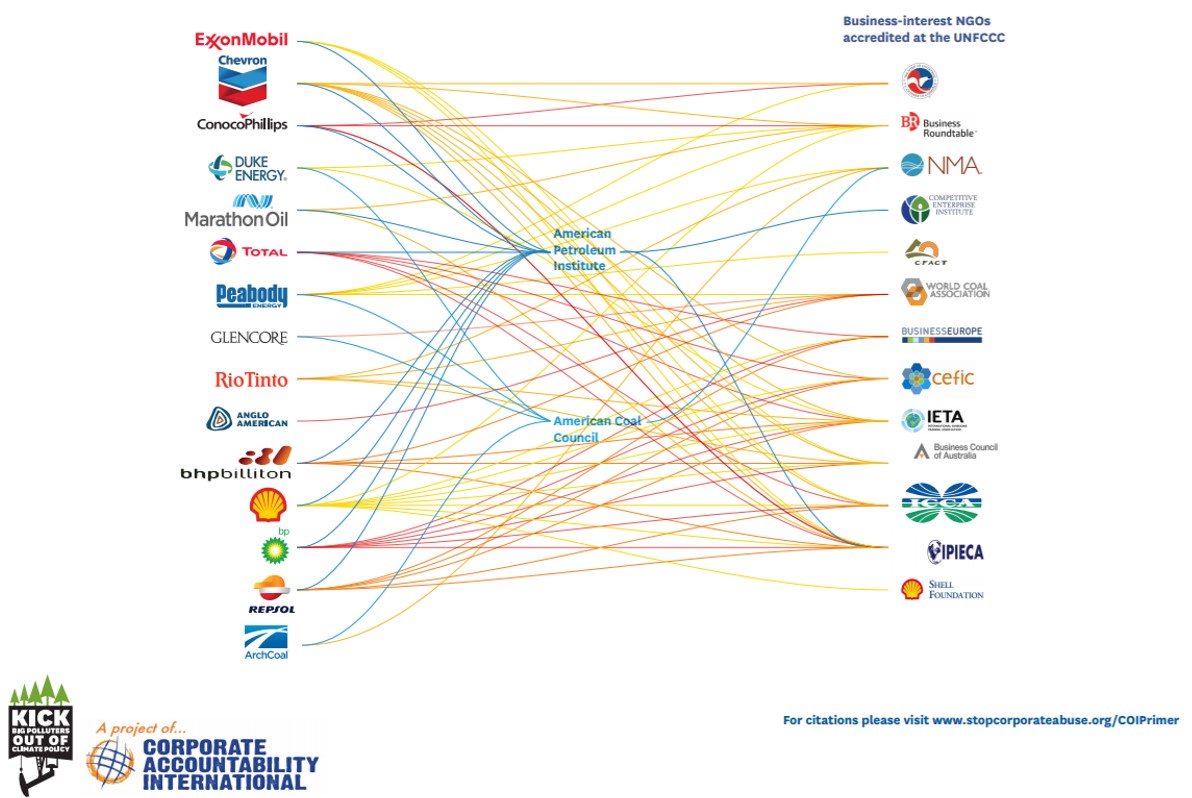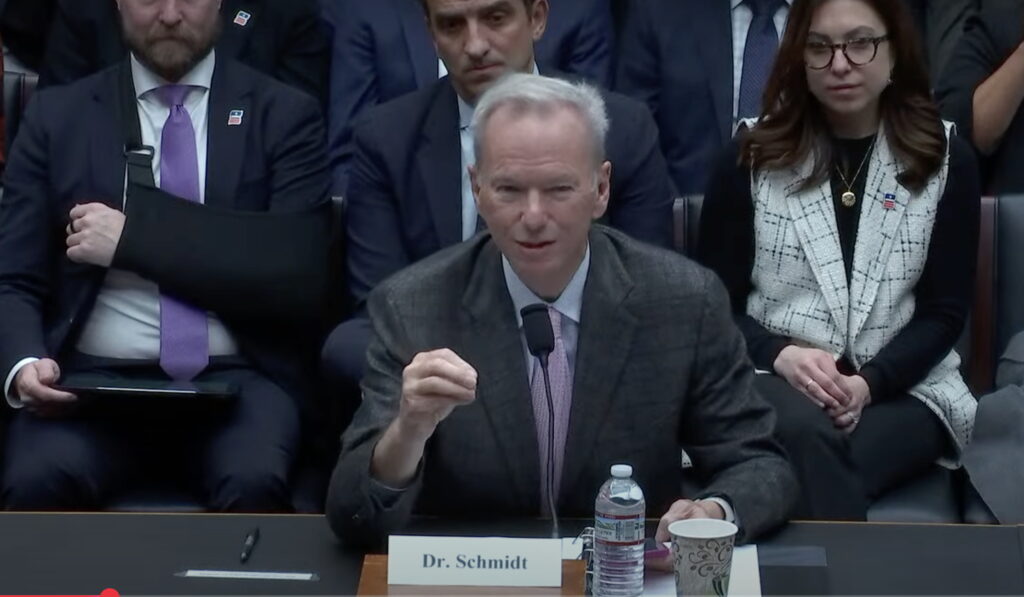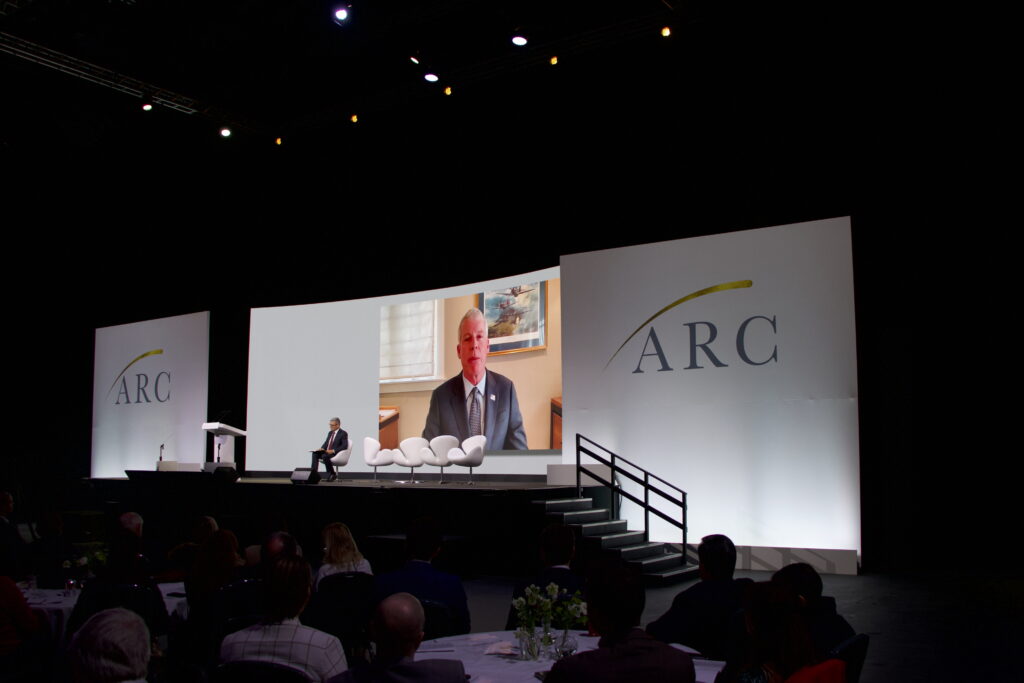It’s no secret fossil fuel companies will have to fundamentally change their business models if countries are serious about tackling climate change.
With so much skin in the game, it’s no surprise they find ways to try and influence climate policy at the highest level.
The international climate talks in Marrakech this week has provided the perfect opportunity for corporate lobbyists and climate science deniers to push their high carbon agendas.
Who’s who
Prior to the COP22 negotiations currently underway in Marrakech, Corporate Accountability International released a map showing how fossil fuel representatives can get access at the highest level.
Many of the groups they identify do indeed have a presence in the inner ‘blue zone’ of the talks, where negotiators meet to hammer out the details of global climate policy. (Most non-state actors and companies are officially consigned to the ‘green zone’ in a separate section of the venue).
Here’s a rundown of the climate science deniers and fossil fuel representatives to keep an eye out for, taken from the conference’s official participant list:
Competitive Enterprise Institute (CEI):
The CEI is a neoconservative think tank that “questions global warming alarmism, makes the case for access to affordable energy, and opposes energy-rationing policies”.
Their crew listed as “participants” at COP22 includes some familiar climate science deniers, including:
Myron Ebell, the man tapped to lead the EPA’s transition for Donald Trump and head of the CEI’s Center for Energy and Environment. He hasn’t been spotted at the conference yet.
Harlan Watson, who was head of the delegation to the UNFCCC when the US refused to ratify the Kyoto protocol, is also here as an ‘adjunct scholar’ of the Centre for Energy and Environment.
Marc Morano, the Communications Director at CFACT, a conservative think-tank in Washington D.C. that has received funding from ExxonMobil and Chevron, is here. So is Craig Rucker, CFACT’s Executive Director, and Michael Goetz, past Vice President and Counsel for CFACT Europe.
Rupert Darwall, an “expert” at the UK’s Centre for Policy Studies, who promotes climate science denial, is also here on a CEI badge.
International Emissions Trading Association (IETA):
The CEI’s delegation pales in comparison to IETA’s 80-strong list. IETA is a business organisation that aims “to build international policy and market frameworks for reducing greenhouse gases at lowest cost”.
IETA’s members include fossil fuel companies BP, Chevron, Shell, Rio Tinto, Statoil and Total.
It has a ‘business hub’ tent hidden away inside the blue zone at the Marrakech conference, and has been running lots of corporate sponsored events during the conference.
IETA has provided badges for plenty of fossil fuel representatives including Christine Faure Fedigan, French energy company Engie’s head of corporate strategy; Arthur Lee, Chevron’s principal advisor on environment and climate change; and Charlotte Wolff-Bye, Statoil’s vice president of sustainability.
World Coal Association:
The World Coal Association does pretty much what you’d expect; lobby on behalf of the world’s dirtiest fossil fuel companies. It lists climate deniers Peabody among its many paying members.
There have already been a number of actions at the conference highlighting that coal has no place in a climate constrained world.
The association’s CEO, Benjamin Sporton, policy director, Milagros Miranda Rojas, and policy advisor Liam McHugh, all have badges at COP22.
Shell and BP:
There are other fossil fuel personnel here under other non-state actor badges.
Marianne Funk, Shell’s senior advisor, is here with the Center for Climate and Energy Solutions.
Tanya Morrison, Shell’s International Government Relations Manager, is here with the International Chamber of Commerce.
Andrea Abrahams, a global director for BP, is here with World Business Council for Sustainable Development.
Corporate influence
The Paris Agreement, signed last year to much fanfare, opened the door for the increased involvement of corporate lobbyists.
Paragraph 134 of the Paris Agreement, “welcomes the efforts of all non-Party stakeholders to address and respond to climate change, including those of civil society, the private sector, financial institutions, cities and other subnational authorities”.
Paragraph 135 “invites the non-Party stakeholders referred to in paragraph 134 above to scale up their efforts and support actions to reduce emissions and/or to build resilience and decrease vulnerability to the adverse effects of climate change”.
While these clauses were partially aimed at increasing the role of NGOs and indigenous communities in the climate negotiation process, it also opened the door for more corporate lobbying.
On the second Tuesday at the talks, Corporate Accountability International and representatives from Latin America and Asia delivered a petition to the US government asking it to act to end corporate conflicts of interest in the UNFCCC process.
It wants policies similar to those of the Global Tobacco Treaty. Article 5.3 of that treaty bars partnerships, financial relationships, revolving door cases and industry participation in the policymaking process.
When asked what could happen if the UNFCCC don’t implement new rules about corporate influence, Maya Golder Kraser from the US-based Centre for Biological Diversity told DeSmogUK:
“The science is very clear that to get to 1.5 degrees we need to keep fossil fuels in the ground, which is obviously directly in conflict with the interests of the fossil fuel industry. So what’s at stake is that we just don’t meet our commitments at all.”
Subscribe to our newsletter
Stay up to date with DeSmog news and alerts








